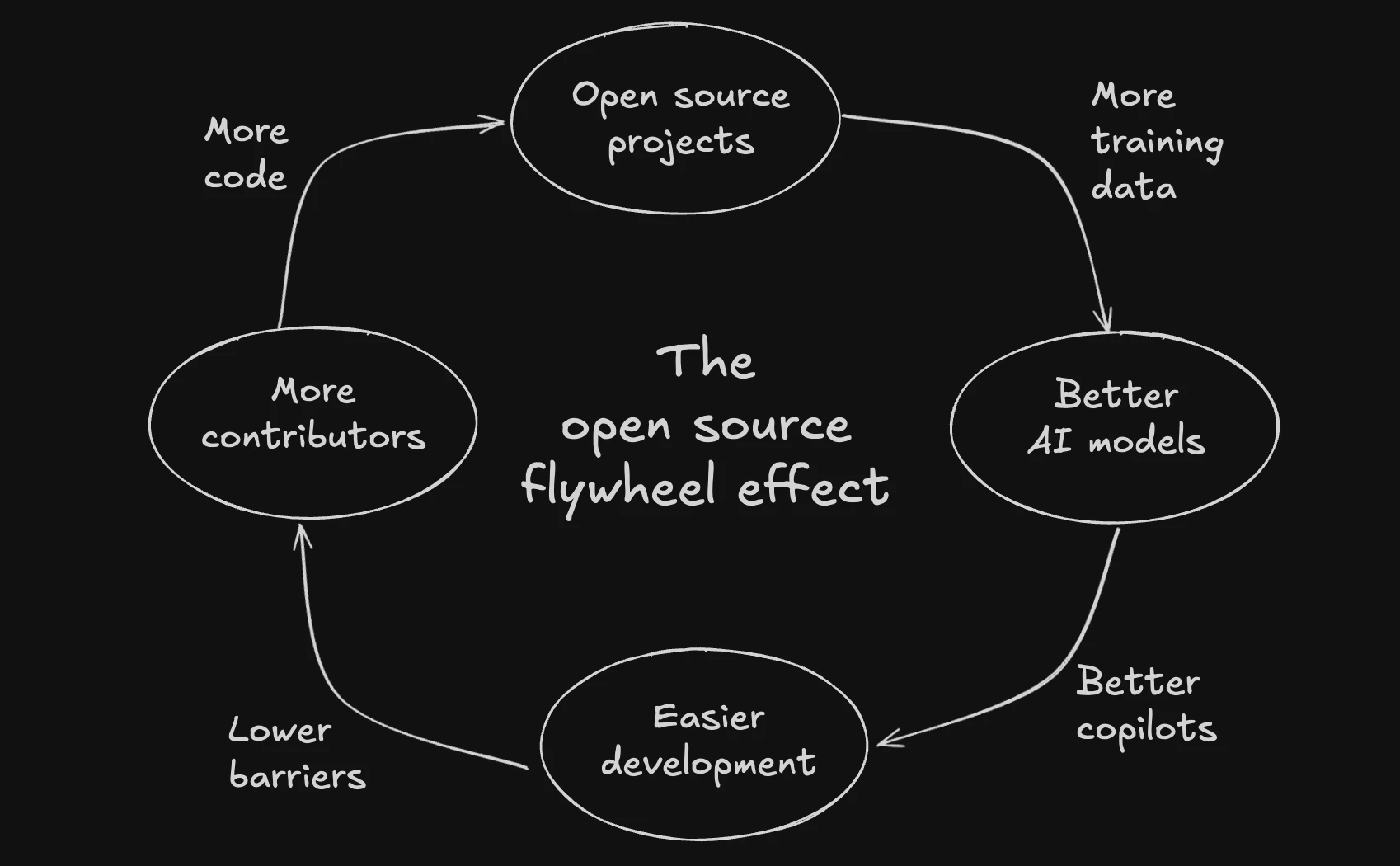There's a zero percent chance that open source doesn't win

AI is transforming software development at a groundbreaking pace, creating a reinforcing cycle that makes open source unstoppable.
As development costs plummet and AI tools make codebases more accessible than ever, the traditional moats of proprietary software are evaporating.
Here's why I believe that the future of software is inevitably open.
The pendulum of software development has swung between open and closed source for decades. While closed source has dominated many sectors due to massive capital investments by tech giants, we're approaching an inflection point where open source's victory seems not just possible, but unavoidable.
The traditional moat of proprietary software companies – their secret sauce of complex codebases built over years with massive engineering teams – is rapidly eroding.
AI tools are democratizing software development to an unprecedented degree (I recently wrote a small post about this here). A small team can now accomplish what previously required hundreds of engineers, dramatically reducing the cost and complexity of building sophisticated software systems.
What's particularly interesting is how AI itself has been trained on vast repositories of open-source code. This creates a virtuous cycle: more open-source code leads to better AI models, which in turn simplifies contributions and enhances collaborative projects. The barriers to entry for meaningful code contributions have never been lower.

The economic equation is shifting
Historically, companies might have chosen closed-source solutions because the cost of customizing open-source alternatives was prohibitively high. You needed specialized engineers who understood the codebase intimately, and modifications often required significant time and resources. This equation is evolving swiftly. Modern AI tools can:
- Analyze and explain complex codebases in seconds
- Suggest modifications and optimizations
- Generate custom implementations based on specific requirements
- Debug and troubleshoot issues perfectly
This means companies can now take battle-tested open-source solutions and adapt them to their specific needs at a fraction of the traditional cost. The economic advantage of closed-source solutions is diminishing daily.
The network effect accelerates
What makes this transformation particularly powerful is its self-reinforcing nature. Every company that chooses open source over proprietary solutions adds to the collective knowledge base. Each contribution, no matter how small, becomes part of the foundation that AI models learn from, making the next implementation easier and more robust.
As AI tools get better at understanding and manipulating code, the advantages of open source multiply:
- Faster innovation cycles
- More diverse contributions from global developers
- Better security through transparent code review
- Reduced dependency on single vendors
- Lower total cost of ownership
The path forward
We're entering an era where the question isn't whether open source will win, but how long until it does.
Companies that embrace this reality early will have a significant advantage. They'll benefit from:
- Reduced development costs
- Larger pool of talent
- Benefit from AI models being trained on this data
- Greater flexibility in customization
- Enhanced ability to attract talent who prefer working with open technologies
- Future-proofed technology stacks that can evolve with community innovations
The momentum behind open source is becoming inescapable. As AI continues to lower the barriers to entry and make code more accessible, the advantages of closed-source systems will continue to erode. The future is open, and it's approaching faster than many realize.
I mean, I can now literally run a 7b Mistral AI model on my machine, fine-tune it, and run it locally. From a technological perspective, this is the best time there ever was to build software.
If you agree with this statement, why are you not building accordingly?